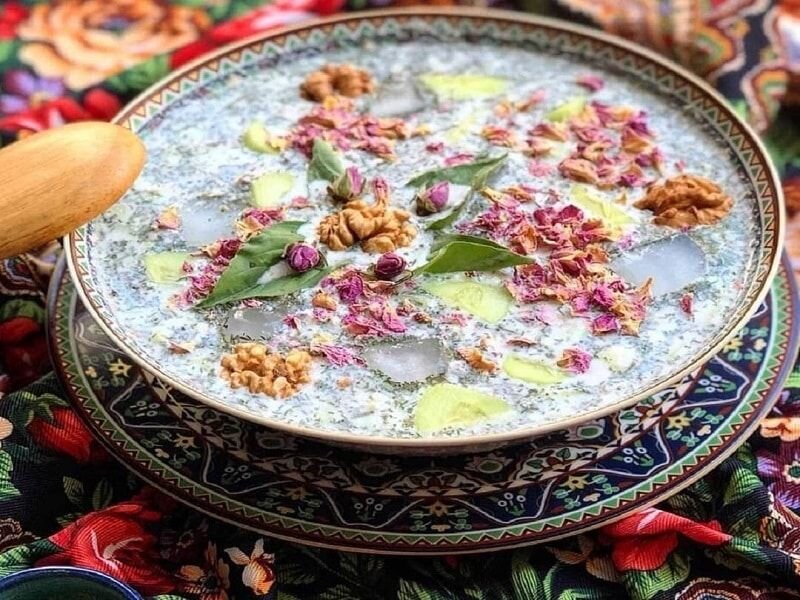Persian medicine casts light on healthy diet in summer

TEHRAN –Persian medicine prioritizes prevention over cure, so to stay healthy in each season, it highlights the need to be aware of what to consume and avoid; as for summer with hot and dry temperaments (Mizaj) the following tips will help you make healthier choices.
People with hot and dry temperaments are more at risk in summer. Anyway, the key to a healthy diet is to avoid foods and drinks that increase body temperature and cause dryness. These include spicy foods such as pepper, ginger, cinnamon, saffron, hot sauces, and mustard; spicy vegetables like garlic, onion, tarragon, mint, leek, watercress, and dill, as well as salt and sweet.
It is recommended to eat raw or steamed vegetables without strong spices.
Portions of salads with ingredients like lettuce, cucumber, and lemon juice are useful because they have cooling features.
Also, cut down on salt, salty foods, and snacks such as salty chips or nuts.
Most nuts have a hot and dry temperament, so eat even salt-free and sugar-free nuts in moderation.
In summer, reduce your intake of sweets, chocolates, honey, raisins, and even sweet fruits such as figs, coconuts, bananas, melons, and pineapples.
Consume foods that are cooked or boiled rather than fried or roasted.
Cooling food, fruits, and drinks is the optimal choice for the summer season.
Choose fish and chicken which have cold and wet temperaments over red meat since it has warming characteristics or Mizaj.
Blackberry and blackberry juice, raspberry, sour apple, cherry, green plump, pomegranate, dill, peach, apricot, watermelon, and grapefruit are great choices for the season, as well as cucumber, yogurt, lettuce, zucchini, coriander, and spinach are great.
Moreover, don’t forget to drink adequate water and include dairy products in your diet.
As was said, Persian medicine strongly focuses on prioritizing health maintenance and disease prevention over treatment.
It is one of the most ancient forms of traditional medicine. It is grounded in the concept of four senses of humor: phlegm (Balgham), blood (Dam), yellow bile (Safra'), and black bile (Sauda'). The concept of the four senses of humor is based on the teachings of Rhazes and Avicenna in an elaborate medical system.
Surveys show that more than 80 percent of people in the country intend to benefit from Iranian traditional medicine, ILNA quoted Nafiseh Hosseini-Yekta, the director of the health ministry’s Persian medicine office, as saying On January 7.
Their interest in traditional medicine has never faded, she said, adding that traditional medicine is being taught in universities.
Traditional medicine has its roots in the culture, customs, and traditions of Iranians and has always been of interest to them, the official highlighted.
With over five hundred graduates in the field and numerous research articles that have been published, the country has been able to improve its position by being ranked fourth in the production of science in the field of traditional medicine in the world, following China, India, and the United States.
She went on to say that traditional medicine and conventional medicine are complementary. Each of these medicines has unique capabilities that can be used together.
MT/MG
Leave a Comment